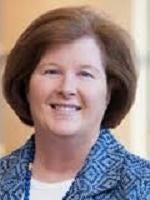Amendments allow for more relaxed rules regarding the provision of modest meals and refreshments for educational interactions, require new quarterly reporting, provide a sunset date on certain provisions in anticipation of federal reporting requirements, and establish a new mandated disclosure provision to instances of noncompliance.
On September 19, 2012, the Massachusetts Department of Public Health (Department) released the amended implementing regulation 105 C.M.R. 970.000,[1] which captures changes to the Massachusetts Pharmaceutical and Device Manufacturers Conduct, Massachusetts General Law Chapter 111N, that were approved as part of the FY 2013 budget earlier this summer.[2] The amended regulation 105 C.M.R. 970.000, commonly referred to as the "Gift Ban" law (Gift Ban), went into effect on September 19. It has several notable provisions, including one that mandates disclosure of instances of noncompliance with the regulation. While most of the provisions in the Department's amended regulation do not differ from the amendments to Massachusetts General Law Chapter 111N, the Department has included some additional amendments such as the sunset date and disclosure requirements.
Amended Regulation 105 C.M.R. 970.000
The amended Gift Ban now does the following:
- Permits the payment of reasonable expenses necessary for technical training on the use of medical devices. This allows medical device manufacturers to provide essential training on new and innovative medical devices without a written sales agreement between the device manufacturer and the healthcare practitioner.
- Permits pharmaceutical and medical device companies to pay for modest meals and refreshments for healthcare practitioners, in connection with non-CME educational presentations made for the purpose of educating and informing healthcare practitioners about the benefits, risks, and appropriate uses of prescription drugs or medical devices, disease states, or other scientific information provided that the following occur:
- Such meals and refreshments occur in a venue and manner conducive to informational communication
- Such educational presentations are not used to promote off-label uses of prescription drugs or medical devices
- Pharmaceutical or medical device manufacturers comply with the new quarterly reporting requirement described below
This expands the current law significantly from only allowing meals within a healthcare practitioner's office or a hospital setting to include other venues such as a restaurant.
- Defines modest meals and refreshments as "food and/or drinks provided by or paid for by a pharmaceutical or medical device manufacturing company or agent to a health care practitioner that, as judged by local standards, are similar to what a health care practitioner might purchase when dining at his or her own expense."
- Requires pharmaceutical and medical device manufacturers to submit quarterly reports related to non-CME educational presentations at which meals or refreshments are provided. These quarterly reports are to include the following:
- Location of the non-CME presentation
- Description of any products discussed at the non-CME presentation
- Total amount expended for the non-CME presentation, including the amount expended per participant—factoring in meals, refreshments, and other items of economic value provided
- Highlights that a company will be deemed to have met the quarterly non-CME meal reporting requirement if the company "makes all disclosures required under federal law" that are then provided by the Centers for Medicare and Medicaid Services (CMS) to the Department on an annual basis.
- Requires the Department to make publicly available and searchable on its website all data disclosed in annual reports from drug and device companies within 90 days of receipt.
- Provides a sunset date for required reporting to the Department. No reporting will be required subsequent to the reporting of payment activities for calendar year 2012, provided that the company makes all appropriate disclosures required under federal law.
- Outlines that after the payment of the annual $2,000 registration fee due July 1, 2012, the Department will no longer require such payment.
- Notably, establishes a new requirement that each pharmaceutical or medical device manufacturer "must report all incidents of noncompliance with 105 C.M.R. 970.000 to the Department and to the Office of the Attorney General in a format specified by the Department [emphasis added]." Companies that have not reported as required or knowingly have incomplete reports should assess the applicability of this provision, including whether it is has prospective or retroactive applicability from the effective date of the amendments.
Implications
These significant amendments to the Gift Ban help to eliminate redundancies that would have existed after the implementation of federal transparency reporting requirements under Section 6002 of the Patient Protection and Affordable Care Act, known broadly as the U.S. Sunshine Act. CMS issued its proposed rule[3] to implement requirements under the U.S. Sunshine Act in December 2011. As of yet, no final rule has been released. Until CMS issues the final rule, companies will continue to report required data to the Department. In a prepared statement delivered at a recent roundtable discussion held by the Special Committee on Aging, Senator Herb Kohl (D-WI) noted that "Secretary Sebelius and CMS tell us that the rule will be finalized by the end of [2012]."
The Department issued a notice of public hearing on the amendments to 105 C.M.R. 970.000 to be held on October 19, 2012, at 10 a.m. in the Public Health Council Room, Second Floor, Department of Public Health located at 250 Washington Street, Boston, Massachusetts.



 />i
/>i

